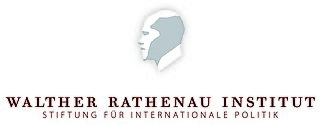Related Research Articles

The Charité – Universitätsmedizin Berlin is one of Europe's largest university hospitals, affiliated with Humboldt University and Free University Berlin. With numerous Collaborative Research Centres (CRC) of the German Research Foundation it is one of Germany's most research-intensive medical institutions. From 2012 to 2020, it was ranked by Focus as the best of over 1000 hospitals in Germany. In 2019, 2020 and 2021 Newsweek ranked the Charité as sixth best hospital in the world and best in Europe. More than half of all German Nobel Prize winners in Physiology or Medicine, including Emil von Behring, Robert Koch and Paul Ehrlich, have worked at the Charité. Several politicians and diplomats have been treated at the Charité, including German Chancellor Angela Merkel, who underwent meniscus treatment at the Orthopaedic Department, Yulia Tymoshenko from Ukraine, and, more recently, Russian opposition leader Alexei Navalny, who had received treatment at the hospital due to his poisoning in August 2020.
The Heinrich Mann Prize is an essay prize that has been awarded since 1953, first by the East German Academy of Arts, then by the Academy of Arts, Berlin. The prize, which comes with a €10,000 purse, is given annually on 27 March, Heinrich Mann's day of birth. The laureate is selected by an independent three-member jury which usually includes the previous year's laureate.
The Gottfried Wilhelm Leibniz Prize, in short Leibniz Prize, is awarded by the German Research Foundation to "exceptional scientists and academics for their outstanding achievements in the field of research". Since 1986, up to ten prizes are awarded annually to individuals or research groups working at a research institution in Germany or at a German research institution abroad. It is considered the most important research award in Germany.
The Münchhausen Prize was instituted in 1997, the 200th anniversary of the death of Baron von Münchhausen. It is awarded in May each year in Bodenwerder, the Baron's hometown, for special talent in the art of speaking or presentation, either in literature or the visual arts, fantasy and satire, in the sense of the Baron.
The Karl-Scheel-Preis is an award given annually by the Physikalische Gesellschaft zu Berlin, a regional association of the Deutsche Physikalische Gesellschaft, for outstanding scientific work. The prize was established through an endowment by the German physicist Karl Scheel and his wife Melida. Recipients are awarded with the Karl-Scheel Medal and 5.000 Euros. The Karl-Scheel Medal in bronze was designed by the German sculptor Richard Scheibe and has a diameter of 12 cm.

Aris Fioretos is a Swedish writer of Greek and Austrian extraction.

The Berliner Kunstpreis, officially Großer Berliner Kunstpreis, is a prize for the arts by the City of Berlin. It was first awarded in 1948 in several fields of art. Since 1971, it has been awarded by the Academy of Arts on behalf of the Senate of Berlin. Annually one of its six sections, fine arts, architecture, music, literature, performing arts and film and media arts, gives the great prize, endowed with €15,000, whereas the other five sections annually award prizes endowed with €5,000.
The Axel-Springer-Preis is an annually awarded prize. The Award is given to young journalists in the categories Print Journalism, TV Journalism, Radio Journalism and Online Journalism due to the decisions of the Axel-Springer-Akademie.

The Walther Rathenau Institut, Stiftung für internationale Politik is a non-party and non-profit foundation based in Berlin. It is named after Walther Rathenau, the German-Jewish foreign minister of the Weimar Republic.

The CORRECTIV is a German nonprofit investigative journalism newsroom whose stated goal is "to give citizens access to information." With about 20 staff members, CORRECT!V is the only nonpartisan, nonprofit investigative center in Germany. CORRECT!V describes itself as an organization that is "one of the many answers to the media crisis." CORRECT!V releases its reports in English, German and Russian languages via its web site to media outlets throughout Europe and around the globe.
Axel Radlach Pries is a German professor of physiology and, since 2015, Dean of the board of Charité hospital in Berlin, Germany. He is married to the photographer Gina Elisabeth Pries.
Fritz Scheler was a German internist, nephrologist and university professor.

Jalid Sehouli is a German gynaecologist and oncologist who specializes in peritoneal and ovarian cancer. He is a professor at Berlin's Charité hospital and a writer of scientific as well as fiction works.

The German Society for Photography is a German photography organisation, based in Cologne. It is concerned with the application of photography in art, science, education, journalism, economics and politics in cultural contexts.

Oscar Wassermann was a German-Jewish banker.
Sucharit Bhakdi is a retired Thai-German microbiologist. In 2020 and 2021 Bhakdi became a prominent source of misinformation about the COVID-19 pandemic, claiming that the pandemic was "fake" and that COVID-19 vaccines were going to decimate the world's population.
The Telemann Prize is an annual classical music award for special achievements in interpretation, research and cultivation of the life and work of Georg Philipp Telemann.
Stefan Moses was a German photographer living in Munich.
The German-Israeli Future Forum Foundation is a charitable foundation based in Berlin. It was founded in 2007 by the Federal Republic of Germany and the State of Israel. It acts as a funding body and is directly involved in project implementation. The principle goal of the Foundation is to promote German-Israeli cooperation. In the long term, this aim is realized chiefly through the following programs: project funding, the German-Israeli Future Network, the Sylke Tempel Fellowship and the Shimon Peres Prize.
The Hegel Prize of the City of Stuttgart was first awarded in 1970 on the occasion of Georg Wilhelm Friedrich Hegel's 200th birthday. It is awarded every three years to a person who has made a contribution to the development of the humanities. The award is endowed with 12,000 euros. A jury decides on the award.
References
- ↑ Georg Henneberg: Die Geschichte der Stiftung für experimentelle Therapie – Aronson-Stiftung, Berlin, 1980
- 1 2 Berliner Mikrobiologische Gesellschaft: 100 Jahre Berliner Mikrobiologische Gesellschaft, p. 91
- ↑ Deutschsprachige Mykologische Gesellschaft: Professor Dr. med. Dr. med. vet. Friedrich Staib, 1925–2011 Archived April 2, 2015, at the Wayback Machine
- ↑ He was refused permission to accept the prize by the East German communist regime, and the prize was handed over only in 1992.
- ↑ Werner Köhler, uni-rostock.de.
- ↑ Pharmakologie, University of Giessen
- ↑ Deutsches Ärzteblatt: Geburtstage, A, Vol. 83, No. 48, 26 November 1986
- ↑ Bundesärztekammer: 1992 Prof. Dr. med. Stefan Carl Wilhelm Meuer Archived May 1, 2013, at the Wayback Machine
- 1 2 Berliner Zeitung: Aronson-Preis wird verliehen, 28 February 1994
- ↑ Universitätsklinikum Freiburg: Curriculum Vitae: Prof.Dr. Otto Haller
- ↑ Deutsches Ärzteblatt: Verleihungen, 1998
- ↑ Leopoldina - Nationale Akademie der Wissenschaften: Curriculum Vitae Professor Dr. Jürgen Heesemann
- 1 2 Verleihung des Aronsonpreises im UKBF an zwei herausragende Wissenschaftler. 18 February 2000, Informationsdienst Wissenschaft (idw-online.de).
- ↑ Deutsches Ärzteblatt: Verleihungen, 2003
- ↑ Charité – Universitätsmedizin Berlin: Aronson-Wissenschaftspreis wird an der Charité verliehen Archived 2015-04-02 at the Wayback Machine , 28 November 2008